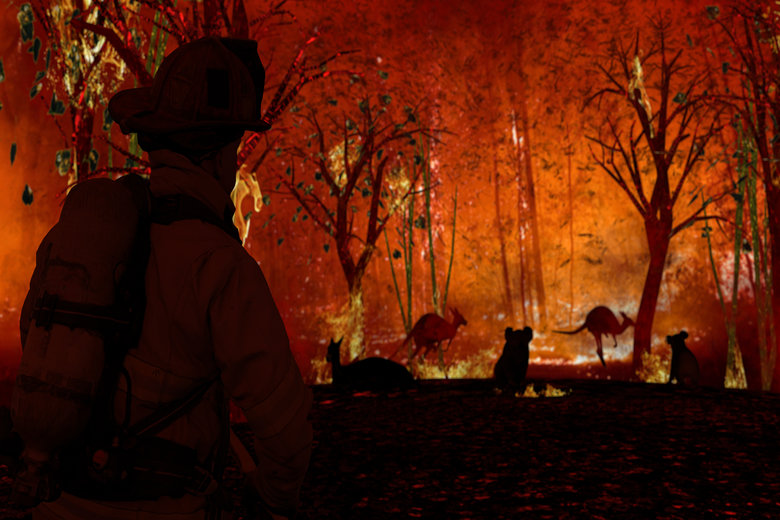
The state’s peak body for local government says it’s disappointed that the report into the recent catastrophic NSW bushfires ignored emergency funding arrangements.
LGNSW says it welcomes recommendations of the Final Report of the NSW Bushfire Inquiry for increased investment to protect lives and property from fire.

President Linda Scott says LGNSW strongly supports the need to for more firefighting staff and equipment, climate change mitigation, hazard reduction and protection of critical infrastructure.
However all this costs money, she says.
“This presents major budgetary challenges that cannot be met equitably or sustainably under the existing NSW emergency services funding arrangements,” Cr Scott said.
“It’s disappointing the report does not address this fundamental problem.”
Bone of contention
Emergency funding has long been a bone of contention between state and local government, with councils calling for the Emergency Services Levy (ESL) to be abolished and replaced with a broad based property tax.
LGNSW has argued the case in submissions to both the NSW inquiry and the Royal Commission in National Natural Disaster Arrangements, which is due to report at the end of this month.
Under current arrangements NSW councils contribute 11.7 per cent of the state’s combined emergency services budget for the SES, RFS and Fire and Rescue NSW through the ESL.
The NSW government contributes 14.6 per cent while 73.7 per cent is collected from insurance policy holders.
Councils argue they can’t afford the continuing escalation of the levy, which they say has been increasing at rates far in excess of council revenue growth.
In the absence of a broad-based property levy, councils maintain they should be able to increase rates separate from the rate pegging process.
Councils at the frontline of disaster
The fires took 26 lives in NSW, burned 5.5 million hectares of land and destroyed 2,476 homes and $899 million worth of infrastructure.
Local councils found themselves at the frontline, with 50 of the state’s 128 councils being declared national disaster areas.
“Local government is at the heart of the planning for and management of every emergency – in fact many mayors, councillors and council staff are also volunteer firefighters,” Cr Scott said on Thursday.
“Councils have long recognised the need for vast improvements in the way we prepare for, respond to and strengthen resilience to bushfires.
“The 2019-20 bushfire disaster brought that home to us all.”
The report makes 76 recommendations for enhancing fire fighting capacity in the state, including better telecommunications and improved auditing and accountability.
It also calls for longer term changes to ensure local preparedness and resilience and better community education.
Recommendations for local councils
The report makes a number of recommendations for local councils, including:
- Increasing awareness of and training for Local Emergency Management Officers
- Boosting support for councils in implementing hazard reduction
- Resourcing councils to audit and enforce compliance powers regarding developments on bush fire land
- Working with the state government to carry out bush fire risk assessments of roads and bridges
- Enhancing communication with state agencies and NGOs about evacuation centres
The state government has accepted in principle all recommendations of the report.
Comment below to have your say on this story.
If you have a news story or tip-off, get in touch at editorial@governmentnews.com.au.
Sign up to the Government News newsletter
Ironically, the NSW government did introduce a broad based process which they did in a consultative and exemplary fashion including meeting all local government costs. Then it got withdrawn. I don’t understand why as this is a common approach in other jurisdictions. It is crazy that those who are prudent enough to take out insurance are penalised for this whereas many of those who are not insured end up with support of some type anyway.